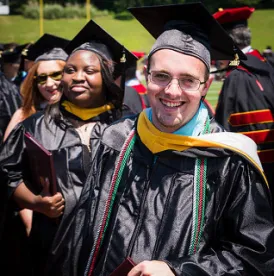Traditionally, a significant portion of U.S. temporary visas issued to foreign nationals are granted to students in the F-1 category. While there is no evidence of new categorical restrictions on F-1 student visa issuance, anxiety about U.S. immigration restriction is impacting this community. Below are several tips for maximizing the probability of obtaining an F-1 visa.
F-1 visas are sponsored by designated U.S. schools for degree and non-degree studies at the primary, secondary, and university level. To gain F-1 sponsorship from a qualifying school, a foreign national must satisfy admission, tuition, and other requirements. After satisfying these requirements, an admitted or continuing foreign student receives sponsorship documents from the school (Form I-20) and seeks an F-1 visa at a U.S. consulate abroad. Successful F-1 visa applicants must convincingly demonstrate ties to their home country.
An F-1 visa requires the applicant to have a residence in a foreign country which s/he has no intention of abandoning and the intent to return to the foreign country upon termination of his/her studies. Proving these two requirements can be difficult for an applicant during the in-person visa interview. To increase the chances of F-1 visa issuance, an applicant may follow the below pointers.
Ties to the foreign country
An F-1 applicant must provide sufficient evidence of his/her ties to the foreign country to satisfy the consular officer that s/he has a residence in a foreign country and intends to return to it upon completion of his/her studies. Actions that may be taken include the following:
-
If an applicant owns a home in his/her home country, s/he may bring evidence of this ownership to the interview.
-
Applicants who live with their parents or someone else may provide documentation that shows the living arrangements (e.g., affidavit, correspondence, lease agreement).
-
Individuals who are employed or own a business may bring evidence of the employment or business ownership to the interview. Such evidence can include recent pay stubs, bank records, registration records, letters of employment, etc.
-
In situations where an F-1 applicant will pursue a course of study to further his/her career in his/her current place of employment in the foreign country, a letter from the foreign employer stating this purpose and their intent to employ the applicant upon his/her return may be used.
-
Applicants with extensive and/or close family ties in the foreign country may provide evidence of the family relationships through birth certificates, marriage certificates, and other applicable documents. This is especially helpful when close family members of the applicant are not also applying for a non-immigrant or immigrant visa to the United States.
-
Evidence of assets (e.g., property deeds, bank accounts, ownership interests, etc.) in the home country may also be provided to the consular officer.
Assurance of intent to return to the home country after completion of studies
At the interview, an F-1 applicant will have to convince the consular officer of his/her intent to return to his/her home country upon completion of the course of study. Possible evidence to establish this includes:
-
Documentation showing where or with whom the applicant will reside upon his/her return to the foreign country. Proof of real estate ownership, lease agreements, or affidavits may be used for this purpose.
-
An offer of employment from a foreign company or a letter stating the intent of a current employer to re-hire the applicant after s/he completes his/her studies and returns to the foreign country.
-
A plan detailing job prospects or career options in the foreign country for after graduation.
-
Evidence of intent to rejoin close family members remaining in the home country during the applicant’s stay in the United States is also helpful in establishing intent to return to the foreign country.
-
For students with pending immigrant visa petitions, an intention to return home before immigrating (such as for the consular interview required for the green card petition) may be considered evidence of qualifying F-1 intent.
Interview tips
Except for those enrolling in an English language program, F-1 visa applicants are required to possess sufficient knowledge of the English language to undertake the chosen course of study. Therefore, applicants should practice speaking English before the interview as the interview will be conducted in English.
F-1 visa applicants need to be particularly careful with their statements at the interview. Be brief with responses and answer only the question asked—do not add information unless it supports the application or clarifies a previous statement. Be polite to the consular officer at all times. Phrases such as “I would like to work/stay/live in the U.S. after I graduate,” “After graduation, I want to stay and work in the U.S.,” or any statement that can be interpreted as having the intent to remain in the U.S. after completion of the course of study can lead to a determination that the applicant intends to immigrate to the U.S. permanently and the denial of the F-1 visa application. If prompted, an applicant can state that perhaps in the future s/he may decide to live and/or work in the U.S., if legally possible under another visa category, but that at this particular moment the sole intent is to remain in the U.S. only for the duration of studies.



 />i
/>i
